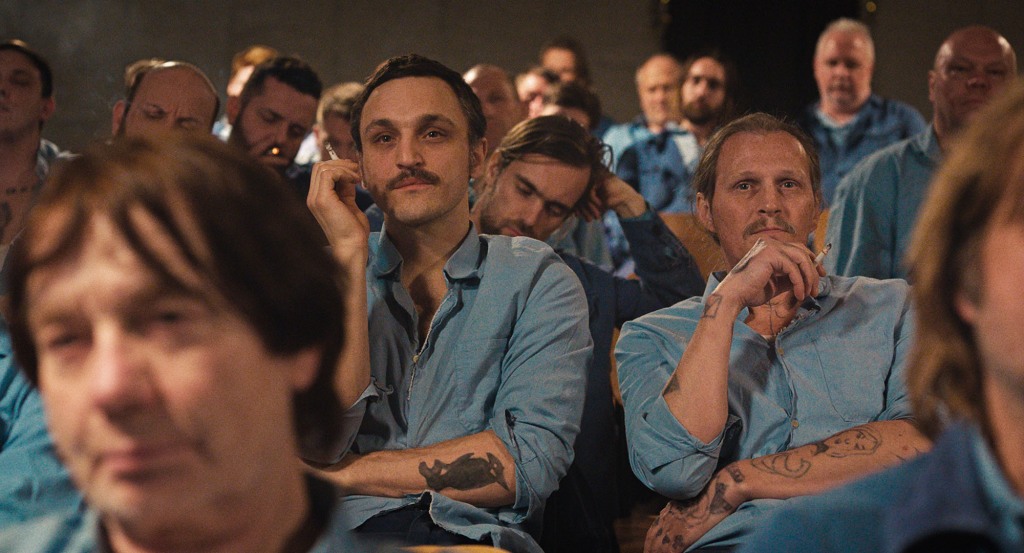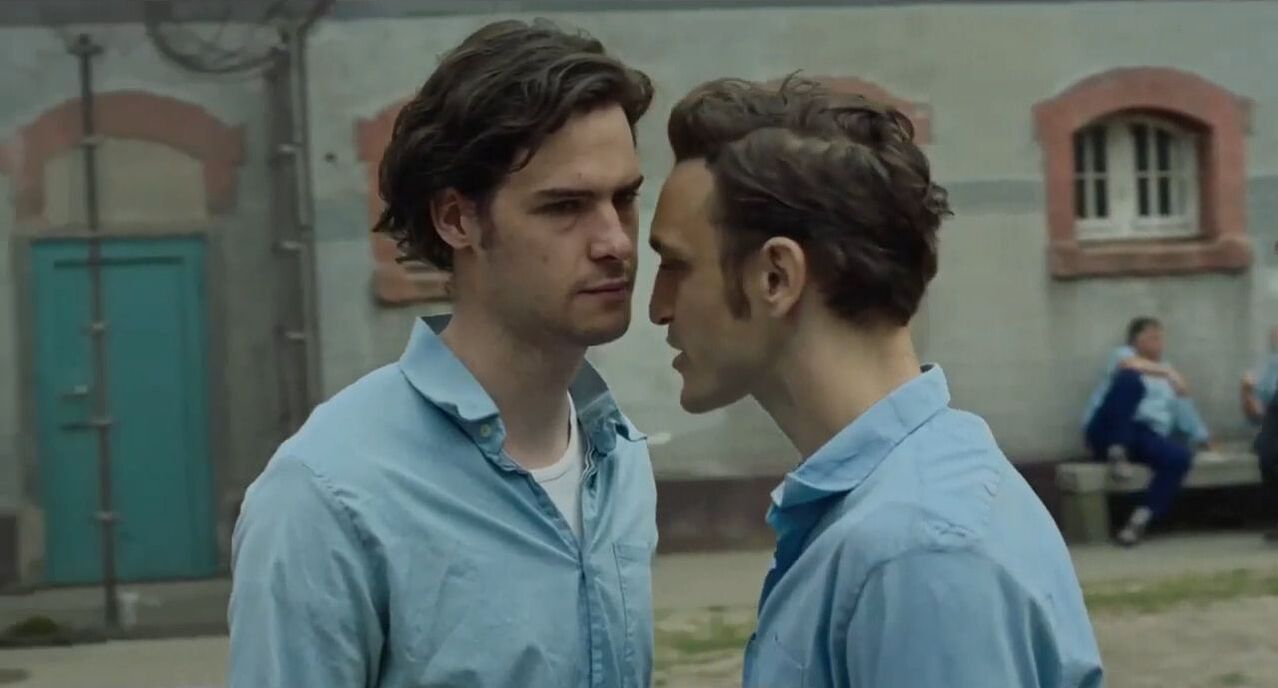|
Review by Tatiana Miranda Great Freedom opens with grainy film footage of different sexual actions between men occurring in a public restroom. The footage is shown as proof of "deviant practices" performed by Hans. In post-war Germany, sexual relationships between men are illegal, according to paragraph 175. Over the course of nearly twenty years, Hans's journey in and out of prison is shown as he furthers both romantic and platonic relationships with his fellow inmates. Three of Hans's prison sentences are shown throughout the movie, ranging from the mid-'40s to the most recent in 1968. The time jumps are done in a way that is distinctive yet natural. Production design and hair and makeup changes give visual clues to different periods of the characters' lives. Hans's rebellion is consistent during the different prison sentences, as are the relationships he builds between his other inmates. The longest and most intriguing relationship is with his first cellmate, Viktor. While the movie features sexual relationships between Hans and other men both inside and outside the prison, the only real loving relationship is shown with Viktor, as they establish intimacy beyond sexuality. From Hans and Viktor's first interaction to their final, there is a clear growth as Viktor comes to an understanding about Hans's sexuality and the suffering he has had because of it. A slight glance reveals Hans's time in concentration camps, which elicits Viktor's attention and initial kindness as he offers to tattoo over the serial numbers shown on his arm. The effects of WWII Germany are not hidden, as the characters are shown removing Nazi insignia from uniforms and working to reform what had been a dark time in Germany's history. Even with these apparent changes, the Nazi regime still stands with the criminalization of homosexuality, which remained long after the end of the war. This movie is quiet in its convictions as well as its mode of storytelling. When there is not dialogue, the audio is not aided by a score but instead by the environment’s noises. In the few parts where there is dialogue it is done intentionally to build the relationships between characters. Even without characters in conversation with each other, we can see the longing between Hans and his subsequent lovers, as well as the affection Hans and Viktor have for each other.
Great Freedom showcases the truth of post-war Germany in a beautiful and heartbreaking way. The movie’s quietness makes it a unique prison movie that is rid of explosive bouts of anger and violence, and instead breaks the boundary of male friendships and redefines what it means to be free. Great Freedom is released March 4. Rating: 4/5
0 Comments
Leave a Reply. |
Archives
July 2024
Authors
All
|
|
|
disappointment media
Dedicated to unique and diverse perspectives on cinema! |


